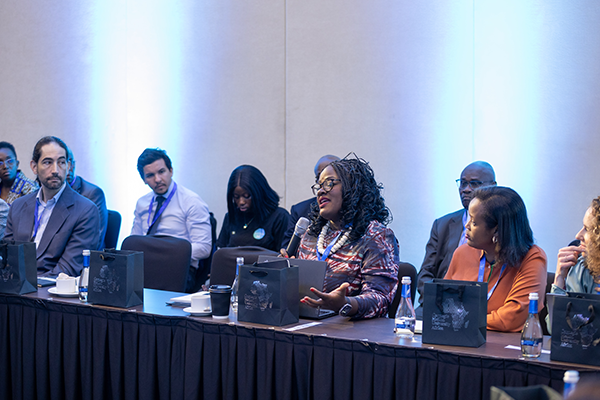Thought leaders discuss African AI sovereignty and ethical innovation
Roundtable calls for African-led approaches to ethical AI adoption
Monica Sumbi
Jun 20, 2025
At the recent Global AI Summit on Africa held in Kigali, leading researchers, policymakers, and technology experts gathered to chart a path for Africa's engagement in the development and application of AI. A roundtable discussion hosted by Carnegie Mellon University Africa, titled "From AI Theory to Applications in Africa," brought together cross-sector leaders to examine the opportunities and challenges of building inclusive, ethical, and relevant AI solutions for the continent.
Conrad Tucker, director of CMU-Africa, opened the roundtable by stressing the importance of investing in science, technology, engineering, and mathematics to ensure Africa remains a contributor, not just a consumer, of global innovation. He noted that AI is not a monolithic algorithm but a complex stack of interconnected technologies, policies, and ethical considerations that must be carefully aligned to serve local needs.

"As a continent, we must determine how we will achieve AI sovereignty, target areas of competitive advantage, and ensure local relevance," Tucker said. "That will require clear policies, interoperable platforms, and measurable goals."
The discussion emphasized tailoring AI research and applications to African contexts. Tucker cited examples of ongoing research at CMU-Africa, including using AI to model traffic flow, detecting malaria with computer vision, optimizing agriculture using drones and satellite data, and diagnosing asphyxia in newborns using federated machine learning. He highlighted efforts to build culturally sensitive robots and develop low-cost health diagnostics using mobile devices.
At the center of these projects is a commitment to relevance. Panelists argued that Africa's greatest AI opportunity lies in building solutions grounded in its social, cultural, and linguistic frameworks. Developing large language models incorporating Africa's more than 2,000 local languages could help amplify community-based knowledge and ethical worldviews. A recurring theme during the session was the need to develop infrastructure without overburdening the continent's limited energy and communications networks. Panelists pointed to Kenya's partnership with Microsoft and G42 to build a geothermal-powered data center as an example of sustainable innovation. They recommended shared AI infrastructure hubs, supported by reliable fiber networks and incentivized through green energy policies.
In parallel, participants called for harmonized regulatory frameworks to address data privacy and cross-border collaboration. Proposals included data embassies, where local laws apply to data stored outside national borders, and a pan-African effort to eliminate tariffs that inhibit digital cooperation.
Tucker urged attendees to commit to concrete action over the next 12 months, with measurable outcomes such as expanding AI training programs, adopting micro-credentials, and ensuring equitable access to high-performance computing resources.
"The true return on investment in AI comes not from the technology itself, but from its ethical use to improve lives," Tucker said. "That's why we must act now and hold ourselves accountable."
The roundtable concluded with a shared commitment to building an AI ecosystem that is ethical, inclusive, and authentically African. As the broader Global AI Summit on Africa demonstrated, the continent is ready to adopt AI and define its future.